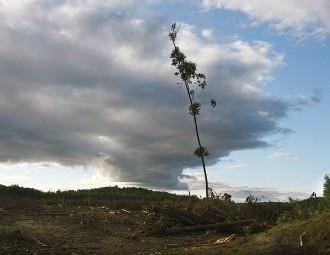Jaraslau Bekish: Slowly, but surely, ecological situation is worsening

We have learned to play the hypocrite: we advance slogans that nobody believes in; we find justification to any, even the most idiotic of our actions.
Jaraslau Bekish, the coordinator of the ecological association “Green network” in the interview with the EuroBelarus Information Service sums up the results of 2013 and gives his eco-prognosis for 2014.
- Beingthe member of the Coordination Committee of the EaP CSF, the member of the Steering Committee of the EaP CSF you have clear understanding in what conditions Belarusan ecologists and their colleagues in the Eastern Partnership countries are working. What is the difference between them and us?
- On a large scale, there is none - except minor differences in legislation and momentary challenges. Public ecologists in the EaP countries share a lot of things, among which is the common problem of asserting their role and place in the society and in the country. Mass social movement is not typical for our countries, and its participants are seen as romantics and extremists who have lost touch with realities of life. Few people think that we are working for the common and indisputable good.
The government usually sees public ecologists as rather annoying and often incompetent paranoiacs, which sometimes can be true. In some cases, when the state can’t turn its back on public ecologists, state media hold defamatory campaigns, organize persecutions and falsifications.
Business community often exploits eco-themes for its own promotion. And common people are puzzled why eco-activists are so up in arms against ecological campaigns of Coca-Cola Company, McDonalds or Danone. But nobody asks such questions in Europe.
If we talk about the similarities and differences between Belarus and EaP countries, we have one problem in common: people in our countries are convinced that economic problems are of paramount importance, which is nonsense. We have learned to play the hypocrite: we advance slogans that nobody believes in; we find justification to any, even the most idiotic of our actions. In this situation it is rather hard to talk about the values, good, civic duty, even if it is an open-ended question, such as preservation of nature.
- Are there any new tunes that have been introduced in Belarus-EU relations in the ecological sphere in 2013?
- There are none, except the worsening in Belarus-Lithuania relations on nuclear power station building. The efficiency of EU money on nature conservation is very low.
- How successful was 2013 for the “Green Network” and Belarus’ ecological community on the whole?
- A lot has been said about it at the Ecological Forum that recently took place in Belarus. Of course, we have achieved something, but on the whole, this year the ecological policy in the country hasn’t improved. Slowly, but surely, ecological situation is worsening; both on a local and national levels.
- What did Belarusan ecologists manage to do and what was beyond their power?
- I would highlight the only campaign, with which we have achieved several results at once. It is Belarusan swamps protection campaign, aimed at the abolition of decree №794, abandonment of current plans for building new peat briquette factories and preservation of wetlands on specially protected natural sites. First, we managed to protect several swamps. Secondly, this campaign found wide support in the society. And what is more, this campaign became an example of cooperation between ecological NGOs and governmental bodies.
- What are the challenges that ecological community will face in 2014?
- I doubt that there will be new challenges; we have to deal with the ones we already have. But many of us are ready to approach these challenges in a different way.
First, these are the issues of national ecologic politics. We are ready to submit our proposals of its updating. And secondly, forgive me this cliché, is to work closer with people and public campaigns in particular.
-
03.01
-
07.10
-
22.09
-
17.08
-
12.08
-
30.09



























